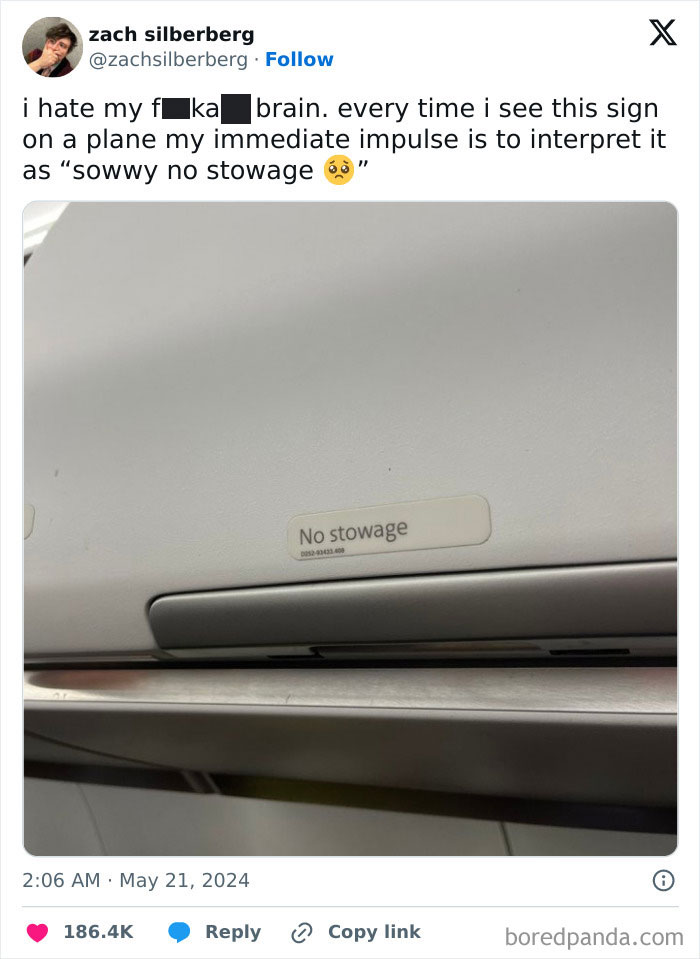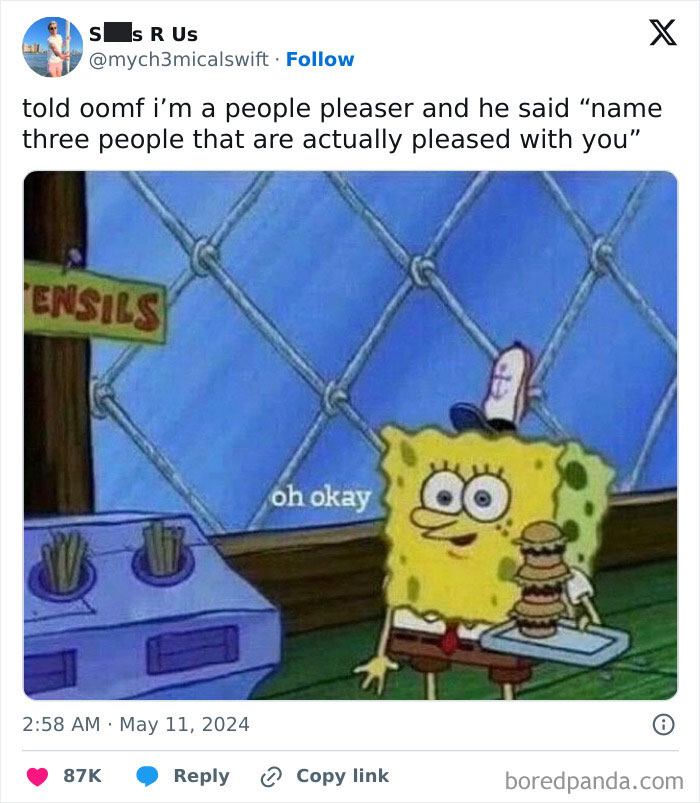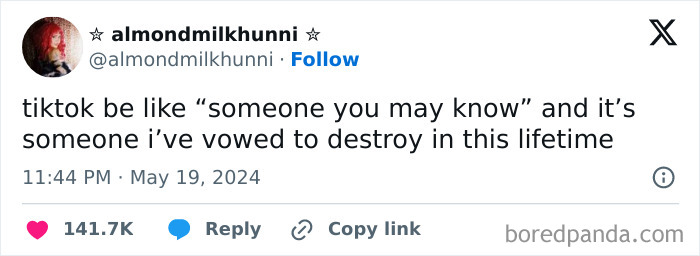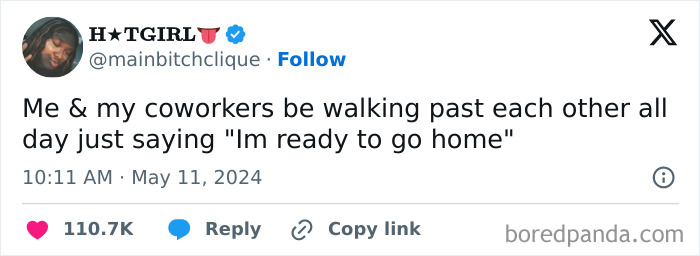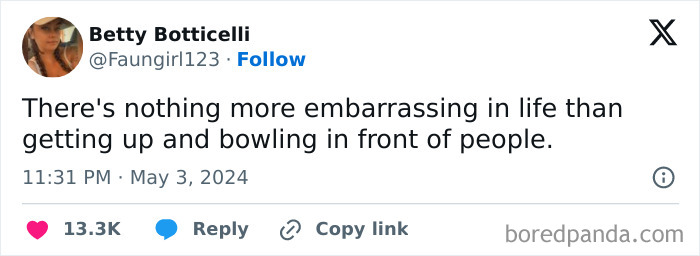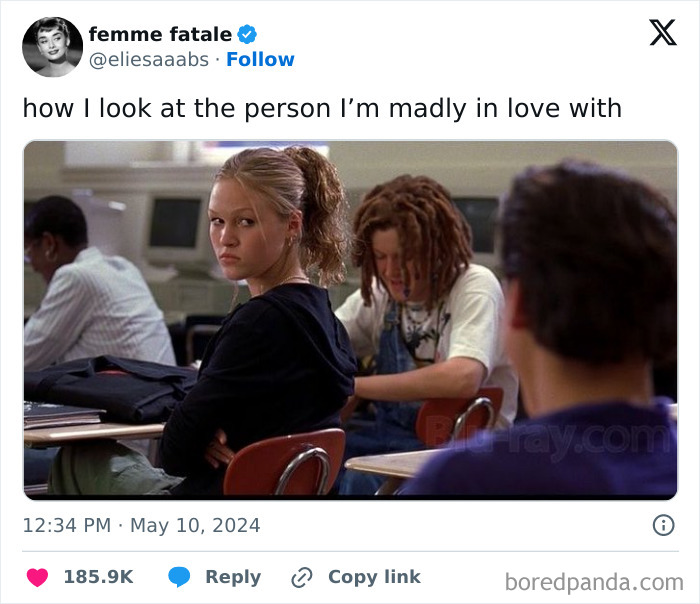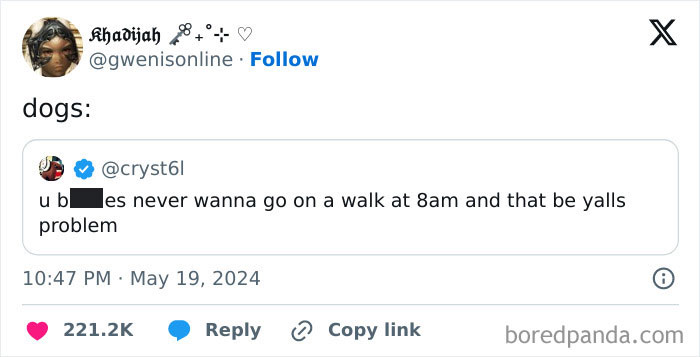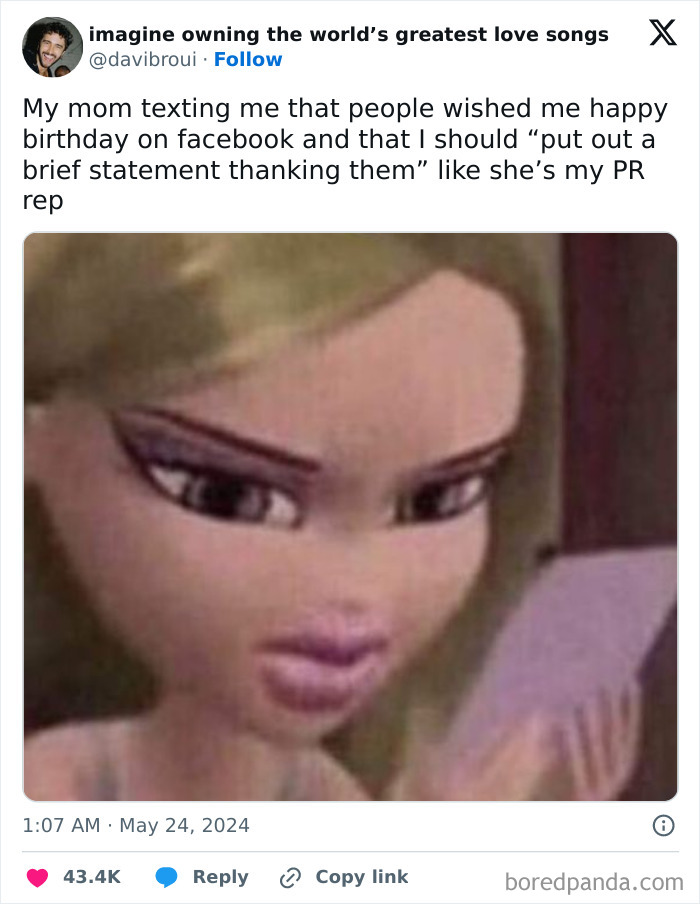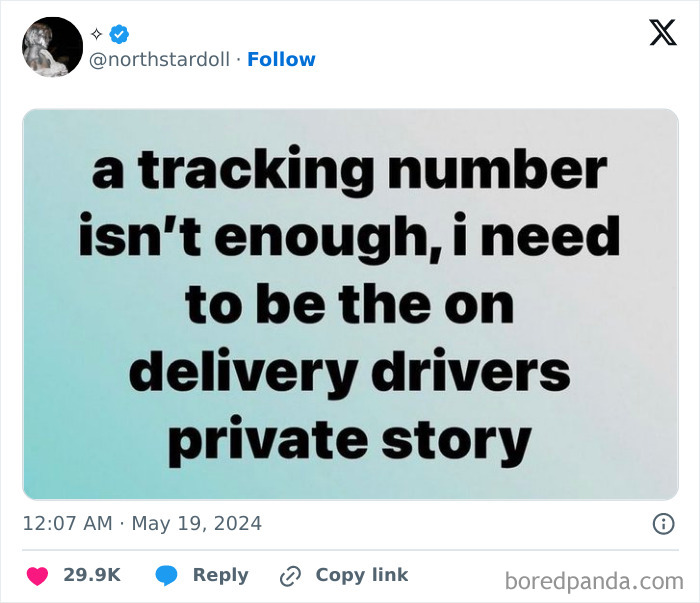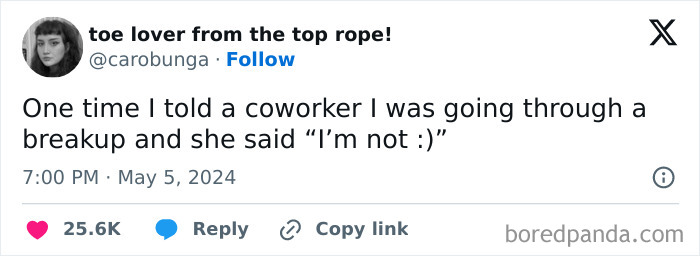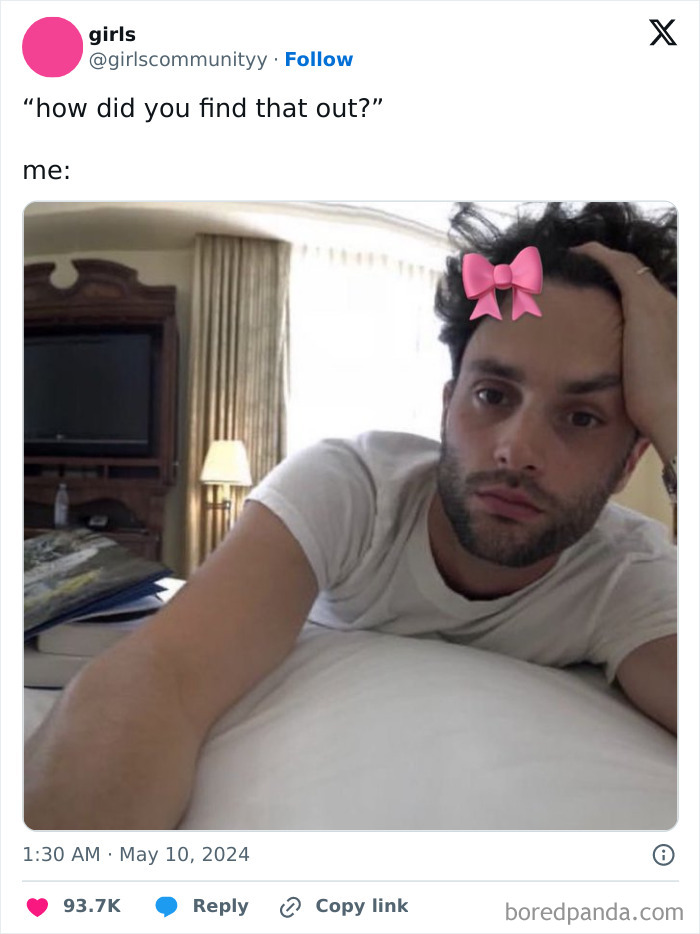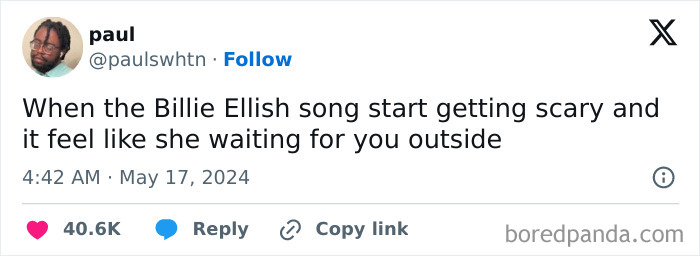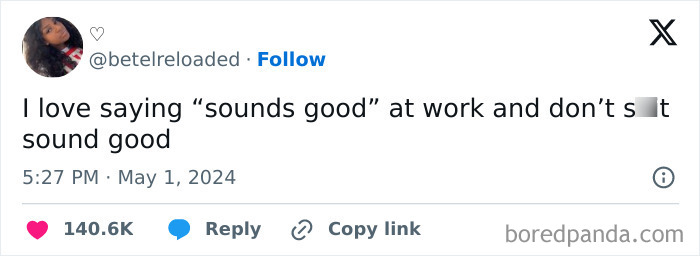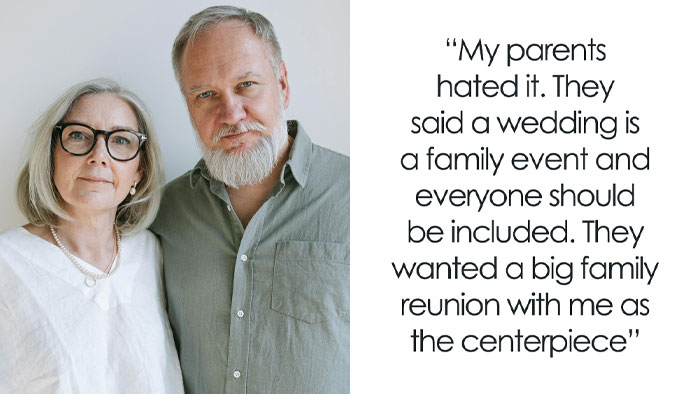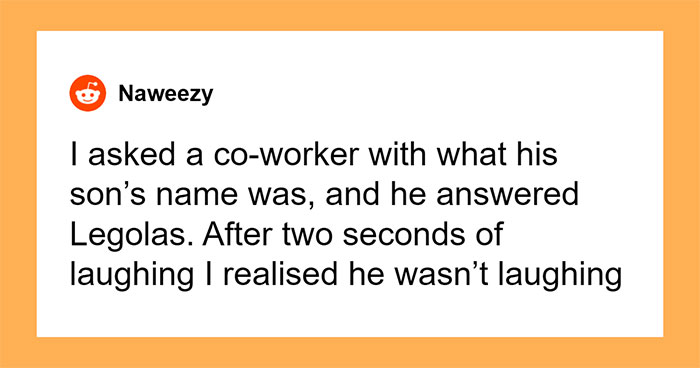If back in the day you had to catch a performer of some sorts for some entertainment, nowadays, you simply have to fetch your phone. And while the experience might not be the same, both can provide a good giggle when a person is in need of one.
If you've found yourself in need of a giggle, you’re in the right place, as today we have an entire list of posts that ought to turn that frown upside down prepared for you. We have combed through X (formerly Twitter) looking for what one could consider the pinnacle of internet humor, and stumbled upon quite a few applause-worthy contestants. So, wait no longer, scroll down to find them lined up on the list below and enjoy a hearty laughing session.
Below you will also find Bored Panda’s interviews with two experts, who were kind enough to share their insight on the topics of laughter, smiling, and internet humor. So, continue scrolling to find our talks with a linguist and humor scholar, Dr. Don Nilsen, and an expert in the theory and criticism of comedy, laughter, humor, and wit and Professor of Theatre Studies at the Dalhousie University, Dr. Jure Gantar.
This post may include affiliate links.
Needless to say, X (still Twitter in many people’s minds) is brimming with comedy gold, as some users manage to present the joys and struggles of everyday life in a more amusing way than some stand-up comedians do. But whether it’s said comedians or posts on X, or anything else, for that matter, that lifts up your spirits, as long as you’re laughing, the source doesn’t really matter.
The reason why it’s important to laugh is because it can have numerous benefits to our well-being. In a recent interview with Bored Panda, a linguist and humor scholar, Dr. Don Nilsen, pointed out that laughter and smiling are important on a daily basis because they are medically and psychologically restorative. “Like pets, family members, friends, music, and even sleep, laughter and smiling restore the body and mind.”
Women stick together like this. Reminds me of when I was in high school at the state qualifiers in track, and before my race I realized my shorts were on backwards. (In my defense- horrible unisex cheap track shorts.) My competitors formed a circle around me and I changed my shorts around right there at the starting line.
While many things can make us both smile and laugh, the two expressions don’t necessarily convey the same feeling or state. “Robert Provine says that most laughter is not a response to jokes or other formal attempts at humor.” Dr. Nilsen noted, discussing the reasons why we laugh. “Salvatore Attardo adds that laughter may be caused by all sorts of non-humorous stimuli—tickling, laughing gas, embarrassment—and can be triggered by imitation (watching other people laugh). Giles and Oxford list seven causes of laughter: humorous, social, ignorance, anxiety, derision, apologetic, and tickling. Jodi Eisterhold discusses the ‘principle of least disruption,’ which ‘enjoins speakers to return to a serious mode as soon as possible.’
“Because smiles can sometimes evolve into laughs and laughs can taper off into smiles, some people think that laughter is merely a form of exaggerated smiling. However, smiles are more likely to express feelings of satisfaction or good will, while laughter comes from surprise or a recognition of an incongruity.”
“Laughter is our response to the perceived absence of sense in the world surrounding us,” suggested Dr. Jure Gantar, an expert in theory and criticism of comedy, laughter, humor, and wit, delving deeper into the incongruity-based emotion. “When we laugh, we relate to others who we are not. Because our identities differ, the negative space of our identities differs as well. There are a few issues on which most people agree, but no views that everyone shares. That is why our sense of humor is the fingerprint of our mind.”
I have to go into the office once a week - more than enough peopley than I prefer. They wonder why I have a negligible social life. Hey guys, you're it
In Dr. Gantar’s opinion, each time we laugh, we reestablish ourselves as rational beings. “This means laughter is as important for our daily lives as any other mental act. Laughter may often be involuntary, but it always indicates our ability to reflect,” he claimed. “If I can paraphrase Descartes: ‘I think; therefore I laugh’.”
The co-founder of the International Society for Humor Studies, Dr. Don Nilsen, pointed out that, in some people’s eyes, laughter is more of a public event, while smiling is basically a private one. “Guiselinde Kuipers says that ‘to laugh, or to occasion laughter through humor and wit, is to invite those present to come closer.’ She says that laughter and humor are like an invitation, in that their aim is to decrease social distance’,” he noted.
The most adult struggle. Oh and picking what to cook… every .. day.
Dr. Nilsen continued to expand on the thought of laughter being a social phenomenon. “That’s why ‘getting the giggles’ never happens when we are alone,” he said. “In contrast, people often smile when they are reading or even when they are having private thoughts.
“Smiling is not contagious, but laughter is. That’s why radio and television comedy performances often have a laugh track. Furthermore, people cannot tickle themselves because the cerebellum in the lower back of the brain somehow sends an interfering message to the part of the brain that controls laughter,” the expert explained.
During the interview, Dr. Don Nilsen told Bored Panda about a study carried out by Anthony Chapman, in which he compared the actions of a group of children who knew they were being observed with a group who did not know they were being observed. “The children who knew they were being watched laughed four times as often as did those in the other group. However, they smiled only half as much. Anthony Chapman concluded not only that laughter can be good or bad, depending on the situation. But he also concluded that humor is both the cause for laughter, and the result of laughter. That’s why humor and laughter are so closely associated.”
I can undo a clean room in under 10 minutes but nobody has asked me for my secret, either.
“The reason that some people find a joke or an anecdote funny, while others might find the same joke or anecdote offensive, is mainly due to embodiment,” Dr. Nilsen suggested, explaining that people differ regarding many aspects, such as their gender, age, ethnicity, and ability, and that can influence the way they view certain types of humor or jokes. “In addition to that, we might be intellectual, physically active, or not. And we might be conservative, progressive or not,” he said.
Now in the digital age, when social media and other representatives of the online world seem omnipresent, it’s no surprise that the internet and humor go hand in hand, too. “The internet has helped to promote many short forms of humor,” Dr. Jure Gantar suggested, adding that funny posts can become an essential part of our daily routines that help us cope with the stress of everyday toil.
“Facebook, X (formerly Twitter), Pinterest, and Tumblr are filled with humor, and there are emojis, memes, photo-bombs, and selfies that are designed to make the reader smile, or even laugh out loud,” Dr. Don Nilsen said.
And it’s not only social media posts or funny videos on YouTube that are great sources of entertainment nowadays - digital applications, too, are becoming more amusing, since as the humor expert pointed out, they are now being taught how to use humor, smiling, laughter, wit, irony, parody, satire, and especially sarcasm.
If this is UK, bird is slang for girl/woman. Though blokes aren't called bees to the best of my knowledge
I just want the residue of 5 pickles without the actual commitment of 5 pickles. Got it?
Psst, have your cell phone in your hand. Unless they know you are psychic 🔮
Spend five whole minutes trying to talk someone through how to click INSIDE the box, and you'll be ever grateful for RDP.
I can't comment on this, but Marmite is best mixed in with the soft butter before applying to the toast (why in the name of all that's pink and spotty did predictive text think I was going to put marmite on a toad...)

 Dark Mode
Dark Mode 

 No fees, cancel anytime
No fees, cancel anytime 








































